SUMMARY
This is AI generated summarization, which may have errors. For context, always refer to the full article.
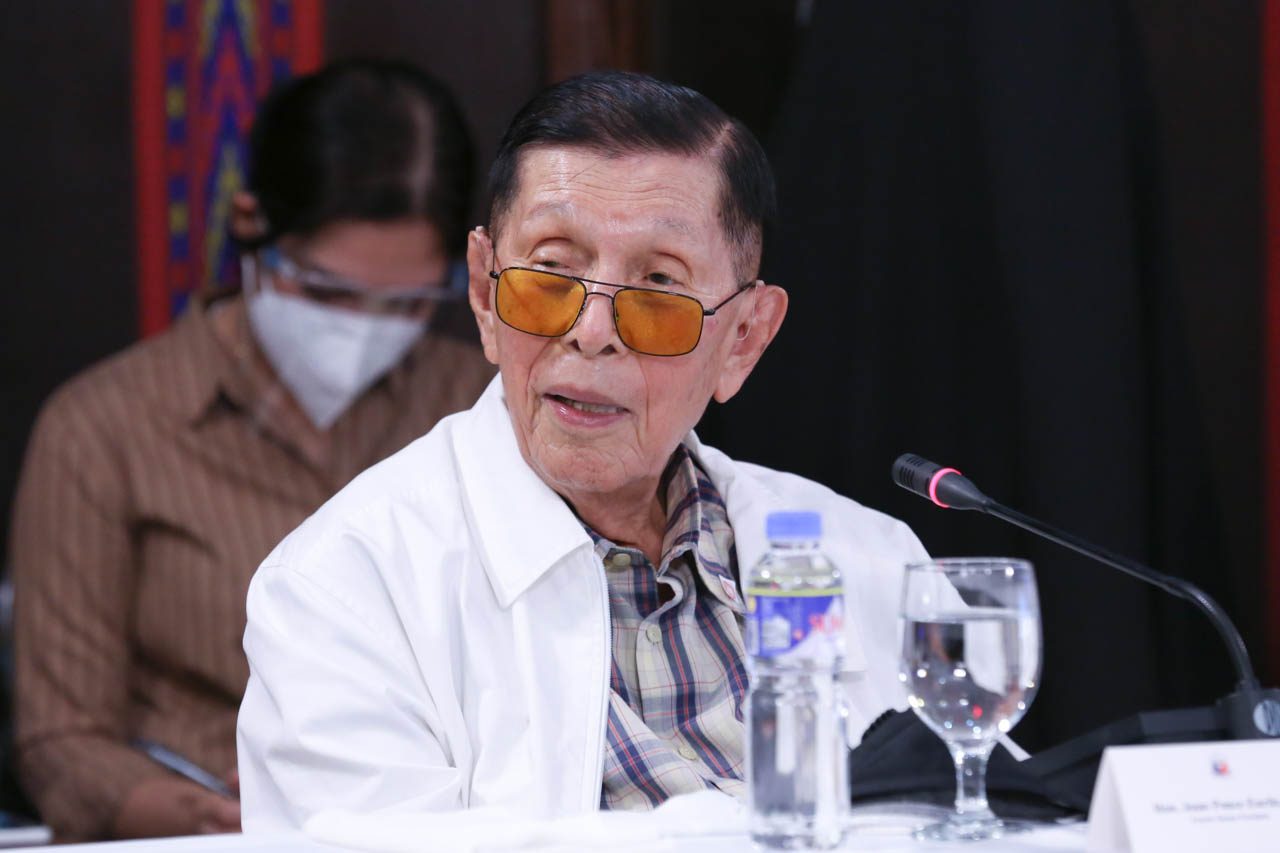
MANILA, Philippines – The Supreme Court 1st Division junked graft charges against Chief Presidential Legal Counsel Juan Ponce Enrile and other respondents in relation to the coco levy fund scam.
In a 53-page decision promulgated on January 16, but publicized on Wednesday, February 8, the SC said the case was dismissed on the grounds of Enrile’s right to speedy disposition of cases.
“Due to the violation of the constitutional right to speedy disposition of cases, the Ombudsman is hereby ordered to DISMISS the Complaint for violation of Republic Act No. 3019 docketed as OMB-0-90-2808 against respondents Jose C. Concepcion, Rolando Dela Cuesta, Juan Ponce Enrile, Narciso M. Pineda, and Danilo S. Ursua,” the decision read.
The decision was penned by SC Associate Justice Ramon Paul Hernando. Associate Justices Rodil Zalameda, Mario Lopez, Ricardo Rosario, Jose Midas Marquez.
Aside from dismissing the case against Enrile and some respondents, the SC also reversed and set aside an Ombudsman decision, which recommended the dismissal of case against the respondents of the case on the ground of prescription – or the period within a legal action can be made against an alleged offense.
Since the case was filed in 1990 – or 33 years ago – other respondents Eduardo M. Cojuangco Jr., Jose R. Eleazar Jr., Maria Clara Lobregat, and Augusto Orosa have died before the case reached the final judgment.
This means their death “terminates their criminal liability without prejudice to the right of the State to recover unlawfully acquired properties or ill-gotten wealth,” the SC explained.
What happened before
The case stemmed from the February 12, 1990 graft complaint filed by the Office of the Solicitor General before the Presidential Commission on Good Government against Enrile and other respondents namely:
- Cojuangco Jr.
- Lobregat
- Rolando Dela Cuesta
- Eleazar Jr.
- Jose Concepcion
- Danilo Ursua
- Narciso Pineda
- Orosa
According to the SC, the petitioner argued that Cojuangco Jr., a businessman, took advantage of his relationship with late tyrant Ferdinand Marcos for his personal gains “through the issuance of favorable decrees.”
“Cojuangco Jr. caused the Philippine Government, through the NIDC (National Investment and Development Corporation), to enter into a contract with him, through its corporation All (Agricultural Investors, Inc.), under terms and conditions grossly disadvantageous to the government and in conspiracy with the members of the UCPB Board of Directors, in flagrant breach of fiduciary duty as administrator-trustee of the ClDF (Coconut Industry Development Fund),” the decision added in the discussion of the case’s background.
After the case was filed, then-Ombudsman Aniano Diserto, on August 14, 1998, approved the Review and Recommendation filed by then-Graft Investigation Officer (GIO) Emora Pagunuran, which recommended the dismissal of the complaint on the ground of prescription of offense.
Later on, the Republic of the Philippines – the petitioner – brought the case to the High Court and filed a petition for certiorari. The petition is being used to seek a review of a court’s decision – in this case, the Ombudsman.
In 2001, the SC granted the petition for certiorari and reversed the GIO and Ombudsman’s ruling on Enrile’s case. But only three years later, the SC issued a resolution setting aside the 2001 decision on the petition for certiorari. (READ: The politics of the coco levy scam: From Marcos to Noynoy Aquino).
The decision
The High Court ruled that Enrile and some respondents’ right to speedy disposition of cases was violated by the Ombudsman due to the delay in concluding the preliminary investigation. It also noted the preliminary investigation spanned for over eight years.
In the ruling, the SC even presented the timeline of Enrile’s case:

“With this case pending for over 30 years and possibly more without assurance of its resolution, the Court recognizes that the tactical disadvantages carried by the passage of time should be weighed against petitioner Republic and in favor of the respondents,” the SC said.
The High Court also noted the OSG’s failure to serve copies of the petition for certiorari to certain respondents – although the OSG provided a justifiable reason behind the failure.
“Hence, considering the existence of special or compelling circumstance, the technical rules of procedure may be relaxed in this case in order to serve the demands of substantial justice,” the SC said.
According to the SC, the Ombudsman’s dismissal of the complaint based on the prescription is “so patent and gross as to amount to an evasion of a positive duty or virtual refusal to perform a duty enjoined.” The court added that the dismissal on the said ground is also erroneous and inconsistent with the laws.
But the court immediately clarified that it cannot decide whether there is probable cause to indict Enrile and others of graft.
“In other words, this Court cannot rule on whether there is probable cause to indict respondents for violation of RA 3019, without interfering with the Ombudsman’s investigatory duty when the same was not even specifically considered as basis for the dismissal of the Republic’s Complaint.” – Rappler.com
1 comment
How does this make you feel?
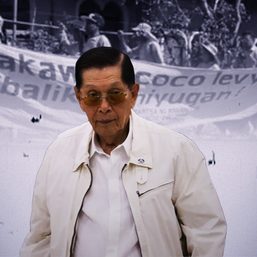
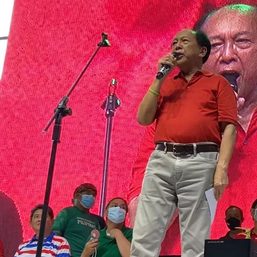

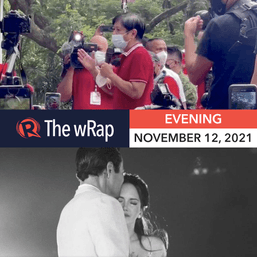
![[Bodymind] Forgiveness, Enrile, and Bongbong Marcos Jr.](https://www.rappler.com/tachyon/2024/03/forgiveness-enrile-bongbong-march-6-2024.jpg?resize=257%2C257&crop=411px%2C0px%2C1080px%2C1080px)
![[Bodymind] Juan Ponce Enrile’s hundred years of happiness](https://www.rappler.com/tachyon/2024/02/tl-enrile.jpg?resize=257%2C257&crop=233px%2C0px%2C720px%2C720px)
![[In This Economy] Small wins matter in the fight against Martial Law denialism](https://www.rappler.com/tachyon/2024/02/fight-against-martial-law-denialism-February-23-2024.jpg?resize=257%2C257&crop=225px%2C0px%2C720px%2C720px)
![[EDITORIAL] Juan Ponce Enrile: 100-year-old chameleon](https://www.rappler.com/tachyon/2024/02/animated-juan-ponce-enrile-100-carousel.jpg?resize=257%2C257&crop_strategy=attention)
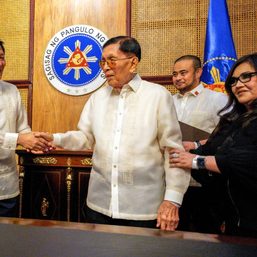

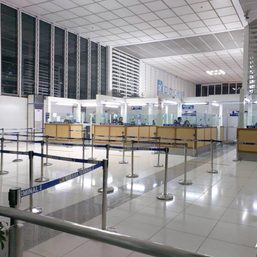


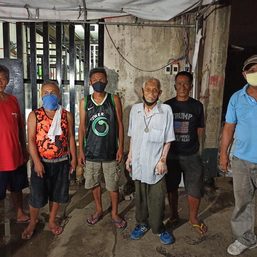
Tama kaya si Atty. Ricky Tomotorgo na ang ating bayan ay “CORRUPT-friendly”? (https://www.youtube.com/watch?v=Q7ehFEqeYOM)